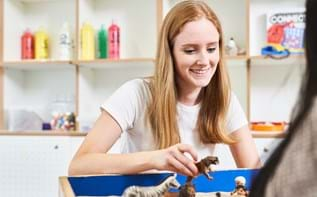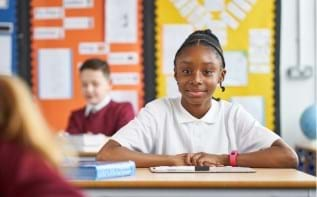Coronavirus: looking after your family's mental health while staying at home
Many families across the UK are now adapting their normal routines and staying at home in order to help prevent the spread of Coronavirus (COVID-19). Now that schools are partially closed, particular challenges are presented for parents and carers with children in the house.
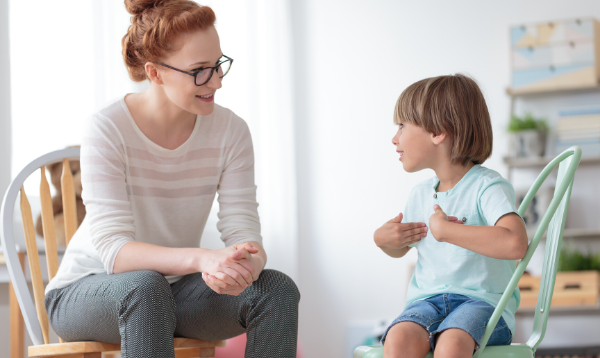
We are all different and respond to uncertainty in different ways. When things feel out of our control, it is normal for your children (and you) to experience feelings of worry, anxiety or fear.
Paula Nagel, Place2Be's Principal Educational Psychologist, suggests some ways that you can look after your children’s, and your own, mental health and wellbeing at this unsettling time.
Stay on schedule
Just because you are not at work and your child isn’t at school, it doesn’t have to mean the end of routine. As much as we like to think a break in routine can be good for us, it can sometimes add to our stress and uncertainty. Having some structure to the day can help children feel more secure. Try having a weekday routine in place and keep some familiar routines going, such as morning and evening routines.
Routines don’t need to be rigid and don’t think you have to replicate the exact school day, but perhaps try making a list of the activities you’d like to do each day. If you don’t manage to achieve them all, then simply add them on to the next day’s tasks.
Some children, especially younger children or those with additional learning or language needs, might respond to a picture timetable of the day, and older children might prefer the day to be broken into some 30- 45-minute slots.
Plan in time for lots of different activities, including things your children already enjoy. For example, if they like being creative, they could write a new song or choreograph a dance. Or perhaps they could try switching off by reading a favourite book or challenge themselves with daily puzzles and quizzes.
It can be easy when spending long periods at home to get stuck behind a screen, but this can be damaging to our mental health. Whilst some screen time during the day is fine, and a useful way to stay in social contact, try including it in your plan for the day and being vigilant of overuse!
And remember to make time for play breaks too - playing can be a great stress reliever for us all!
Stay active
Staying physically active is a key part of looking after our mental wellbeing. Fresh air and being outdoors can do wonders for our mental wellbeing so if you can, try to schedule in some time outside, like a school playtime.
If it’s safe to do so, you could explore a local park with your family, kick a ball around in the garden (if you have one), or simply go for a walk around the block.
If getting outside isn’t an option, you could schedule in some indoor exercise time. You could challenge your children to make up their own exercise routine. Make it fun with your own choice of music, or maybe even just have a dance around the living room!
Stay creative
As well as encouraging children to keep up the hobbies that they already love, this could be a good opportunity to try something new.
Anything lying around the house could become a project: old boxes; toilet paper rolls; or even scrap paper can be transformed with a little imagination. Encourage your children to grab some paints, felt tips or pencils and find a space at home where they can make a little bit of mess.
For older children, activities like cooking can be a good distraction from difficult feelings. Try researching some new recipes or teach them how to cook their favourite meal. Activities with an outcome or ‘final product’ give an activity added purpose and brings a sense of achievement.
We recommend trying some of these CBeebies ten minute craft ideas and for older children, try BBC Food's recipes for teenagers.
Stay in touch
While you and your children are at home, it’s important that you find time to stay in touch with your friends. For younger children, you may be able to contact other parents and arrange a ‘virtual playdate’ over a video calling service like FaceTime or Skype, giving your children a chance to see the friends they would normally be seeing at school.
If possible, try not to rely solely on social media to stay in touch with family and friends. Make time for telephone catch ups too!
Finally, it’s natural to want to keep up to date about what is happening and what we can do to stay safe, but try to limit the amount you and your children are exposed to social media, and make sure you only look at reliable news sources.
Remember to keep it simple and clear when talking to children with information that is relevant to their age and ability. And although your child’s school is not open as usual, remember that in many cases staff will still be available for you to contact.
Looking for more support?
If you or your children are struggling, it’s really important to talk to someone. If this can’t be face-to-face, you can find contact details for a range of organisations who can provide immediate support on our website.
Remember as parents and carers it is equally as important for you to look after your own mental health. For more information on how to support your children, you can find further advice from Place2Be here.
News & blogs

Staying cool and connected with my teens
Programme Leader for Family Work, Judah Racham, reflects on the challenges parents face when connecting with their teenagers.
Read more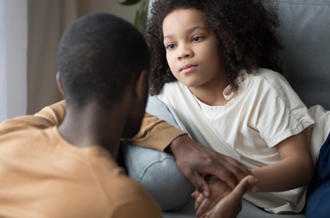
Talking to children and young people about war and conflict
Our advice on how to talk to children and young people about war, and support them if they’re struggling with the news.
READ MORE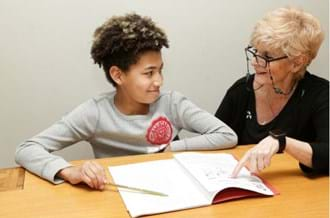
6 ways to support children with worries around schoolwork and exams
We’ve shared some tips on how to support children and young people with worries around schoolwork and exams.
Read more


